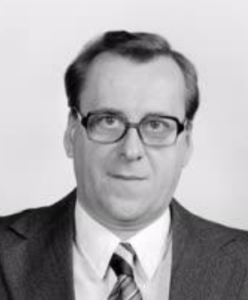Ottó Hutter (1930)
His professional career is linked to the Telecommunications Research Institute ( TKI ), where he was a senior employee for decades; he eventually retired as head of the scientific department.
Initially, he worked on solving electronic technology problems: semiconductor production, radar and television image display.
After that, he and his group worked on the development of transmission equipment: they developed modern, digital carrier frequency equipment and systems that could serve both wired and wireless transmission. (In order to increase the information transmission capacity, they developed a so-called AKS (Addressen Kode System) modulation system, an idea that contains interesting parallels with the later generally widespread Internet transmission protocol.)
In the early 1970s, when TKI expanded its telecommunications profile towards digital transmission, it began to deal with the development of pulse code modulation (PCM) systems. In the development of these telephone and data transmission systems, it sought modern, digital, microprocessor solutions from the very beginning (e.g. the development of a microprocessor modem for the Orion company).
Before his retirement, he was somewhat interested in the newly emerging and rapidly spreading field of optical telecommunications.
He had numerous patents, mostly service inventions filed together with his colleagues.
He received the State Award (1985) for his outstanding scientific and managerial work in the development of large-scale telecommunications equipment and complex systems, and in the modernization of product structure.
Created: 2024.06.20. 00:08
Last modified: 2024.09.04. 20:02

